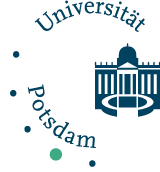Gregor Fitzi
After studies in Florence, Italy, Gregor Fitzi obtained his PhD in Sociology from the Faculty of Sociology of the University of Bielefeld, Germany in 1999 . He edited the 16th volume of Georg Simmel’s collected works. From 2000 to 2004 he was assistant at the Institute of Sociology of the University of Heidelberg, Germany and from 2005 to 2009 researcher at the University of Florence, Italy. From 2010 to 2014 he was senior researcher at the Institute of Social Sciences at the University of Oldenburg, Germany. In February 2013 he obtained his German habilitation at the Institute of Sociology of the University of Potsdam, Germany. Venia legendi: Sociology. In November 2014 he obtained his Italian Habilitation in: General sociology, legal and political sociology. In March 2015 Fitzi was visiting professor at the University of Montréal and in November 2015 at the Ecole des Hautes Etudes en Sciences Sociales, Paris. Gregor Fitzi is interim full professor for General Sociology and Sociological Theory at the Faculty of Sociology of the University of Bielefeld, Germany.
Amongst his publications are the books Grenzen des Konsenses. Rekonstruktion einer Theorie transnormativer Vergesellschaftung (2015), Max Weber zur Einführung (2008), Max Webers politisches Denken (2004), and Soziale Erfahrung und Lebensphilosophie. Georg Simmels Beziehung zu Henri Bergson, Konstanz (2002).
Main interest areas: intercultural integration, sociological theory, history of sociology, political sociology.
Citizenship Lecture January 26, 6pm | Campus Griebnitzsee, House 7, Room 2.27
The Rise of Pluralistic Society against the Background of Citizenship Erosion, Ethno-Religious and Political Conflicts
Different social developments like population aging, intensified migration flows, social regrouping and the cultural pluralisation of occidental societies as well as the development of significant Muslim minorities in Europe give a new dimension to the citizenship issue. The political-normative agenda of the welfare state is faced with the prospect of a young, possibly well qualified, yet cheap workforce. Consequently, an increasing group of second-class citizens becomes a substantial part of occidental societies. However, it would be illusory to think that the erosion of citizenship only concerns the discriminated marginal groups of society. The change of basic conditions on the employment market extends to the native population and eventually affects the whole complex of economic and political relationships. Fears of social relegation flow into the symbolic conflict between “citizen-worker” and “migrant-worker”. Hence, the migration background of the latter becomes the pretext for cultural and religious as well as politically based hostilities, which take the form of identitarianism, xenophobia and political populism on the one hand, and religious segregation, fundamentalism and social disintegration on the other. The lecture addresses these issues and draws a balance of the current situation from the point of view of social and political theory in order to give a tentative definition of the category of “pluralistic society”.

